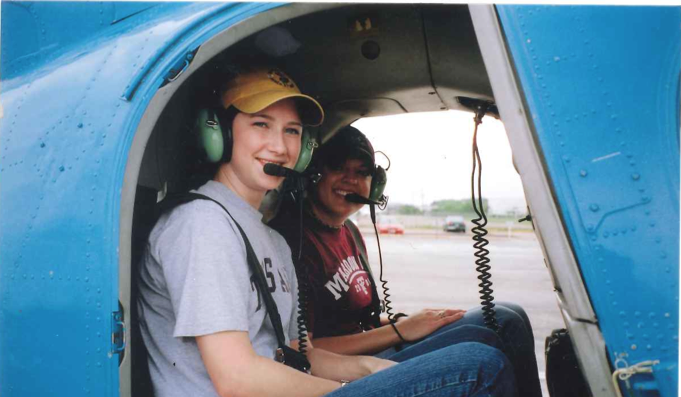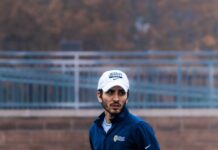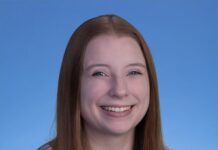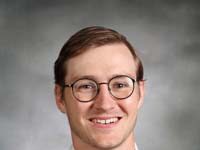Not every high school teacher can say that he or she has worked for one of the most prestigious intelligence agencies in the nation or immersed themselves in a new culture for four months in order to find their true calling in life. However, one woman in particular can allude to both. Ms. Stefanie Page, forensics and chemistry teacher, has many such experiences already under her belt, seeking to embark upon more in the future.
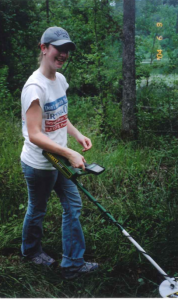 Ms. Page was born in Victoria, Texas, southeast of San Antonio, to Michael and Shirley Page, the youngest of three siblings. Mr. Page worked in the oil field while Mrs. Page stayed at home caring for her children. Her childhood was mainly centered upon “outdoorsy activities,” Ms. Page comments. “There was a pasture next to our house where we would pick dewberries in the summer and spring. We had to be careful not to step on the snakes. My brother David and I would try and dig tunnels to see if we could escape from our house.” All in all, Ms. Page sought to really connect with nature, “hang out and goof. One of the biggest things was knowing to come home when it got dark.”
Ms. Page was born in Victoria, Texas, southeast of San Antonio, to Michael and Shirley Page, the youngest of three siblings. Mr. Page worked in the oil field while Mrs. Page stayed at home caring for her children. Her childhood was mainly centered upon “outdoorsy activities,” Ms. Page comments. “There was a pasture next to our house where we would pick dewberries in the summer and spring. We had to be careful not to step on the snakes. My brother David and I would try and dig tunnels to see if we could escape from our house.” All in all, Ms. Page sought to really connect with nature, “hang out and goof. One of the biggest things was knowing to come home when it got dark.”
Throughout her childhood, her parents “never really told me the value of my academic career. I saw my sister, Jennifer, and knew that I wanted to be just like her. So, I used her as a role model throughout my schooling.” Ms. Page attended public schooling until her collegiate years. She went to Stroman High School, which unfortunately does not exist anymore due to consolidation. Ms. Page was incredibly involved in her school. “I would either be in academic achieving courses or student organizations such as National Honor Society or Key Club.” In addition, Ms. Page was drum major of her high school band senior year, and salutatorian which she notes as a “highlight of her high school career for obvious reasons.”
Looking back, Ms. Page first realized that she wanted to major in genetics ever since she watched the film Gattaca in Freshman Biology in high school. So, during high school, she worked at a company called Northrup King, “which was essentially a genetic research facility for sorghum and corn. I ended up working in a field during the summer, going out and pollinating, threshing, and doing hands-on stuff with my older brother.”
Ms. Page later attended Texas A&M since it was the only university in Texas at the time that had her desired major, genetics. “I had no clue 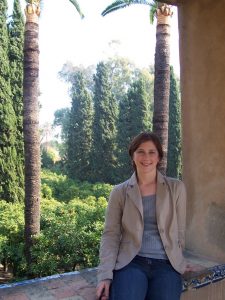 what I was going to do with genetics,” she says. “It was still in the back of my mind that forensics could be there, but I kept thinking to myself that I love this topic, and so I pursued something that I really enjoyed doing, something that my parents always taught me to do at a very young age.”
what I was going to do with genetics,” she says. “It was still in the back of my mind that forensics could be there, but I kept thinking to myself that I love this topic, and so I pursued something that I really enjoyed doing, something that my parents always taught me to do at a very young age.”
Her senior year at Texas A&M, Ms. Page studied in a program that required her to be immersed in her field of study. “I was connected with graduate and doctorate students who had been researching for a very long time. I had to take the class and earn the grade. And then I realized that I can’t do this forever. It was a grade, and then it would turn into a job, and finally reality.”
Parting ways with her major, Ms. Page decided to take the only forensics course offered at A&M and came to the realization that she “could actually do something with this field. I had the opportunity to do hands-on things and it was my fit. I really enjoyed it. After that, I was on the lookout for a DNA forensics job.”
After graduation, she talked to professors and was given and internship opportunity with the FBI. “I had to receive the top secret clearance and knew that I would be dealing with some pretty high profile stuff. That was my introduction into the agency. In the meantime, I wouldn’t change it for the world.”
During those four months, she learned a lot about the judicial system, which is not how it actually appears on television. However, she was not too thrilled when she was given an assignment concerning corporate fraud and corruption within a Houston-based energy and natural gas company called Enron. “I was thinking that is was more financial. I wanted to go with some of the guys that were doing more criminal cases since they were really more involved.”
“However, when I started applying myself by looking at paperwork and talking to the agents on the case, I learned that this case was a lot larger than I initially realized. I was able to see how this giant corporation failed and watch the CEO get indicted in a court of law.”
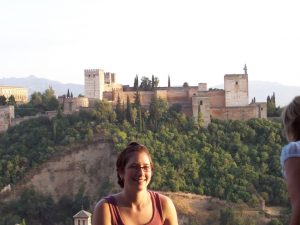 Not only did Ms. Page witness court proceedings, she, and her fellow group of interns, “did some surveillance, go to the gun range and shoot some weapons the FBI carries, go to medical examiners’ offices and watch a few autopsies, and also take a helicopter flight with the Houston Police Department and observed a pair of criminals on a roof trying to escape.” To this day, Ms. Page maintains contact with many of the agents and interns with whom she worked.
Not only did Ms. Page witness court proceedings, she, and her fellow group of interns, “did some surveillance, go to the gun range and shoot some weapons the FBI carries, go to medical examiners’ offices and watch a few autopsies, and also take a helicopter flight with the Houston Police Department and observed a pair of criminals on a roof trying to escape.” To this day, Ms. Page maintains contact with many of the agents and interns with whom she worked.
After working with the FBI, Ms. Page lived in Granada, Spain for four months. Don’t worry, it was not part of the Witness Protection Program where she was required to change her identity. Instead, she went to learn Spanish and about the culture, “which is at least what she told her parents,” she adds. “I was really trying to figure out what I wanted to do, which was my excuse for travelling. My brother continues to pick on me about this to this day.”
Ms. Page then moved back home to her parents’ house “to think about [her] life.” She became a substitute teacher, and her first job was a kindergarten class. “I knew that I loved the little ones, loved them hugging, but I just couldn’t do that.” She says that she did not have the energy “to handle the little cuties.”
Next, she worked as a Forensic DNA analyst, a bit of a different career path than substitute teaching. “An alumni email came from A&M one day that said if I had ever wondered to apply for this job in Dallas. So I said ‘Why not?’ All they could do was tell me ‘No.'” She applied for the position and they told her to come on up for an interview. “It was a new opportunity. So, I packed my stuff and said ‘See ya’ to my parents.”
Beginning in July of 2005, Ms. Page did lab work, analyzed, processed, and collected evidence. She also “wrote reports scientific in nature and testified in court.” All the work and research that she did eventually was related back to DNA. “There were some interesting cases, for sure,” she comments. However, she is unable to disclose that information because she would need approval, first and foremost, and then credit her sources.
Eventually, what goes around comes around. By that, Ms. Page decided to return to teaching. “I had worked in the forensic career for 5 years and I was stuck in a rut. I was constantly just sitting at my desk writing reports.” However, she wanted to do more hands-on, interactive activities, such as those given to the people fresh out of college. So, she went back to substitute teaching, “not in elementary. God Bless those who can.” Both middle and high school remained as opportunities because “the older aged kids know what they need to learn and move forward in life.”
Ms. Page completed the alternative certification for teaching. At first, she wanted to teach in a middle school, but she was handed an opportunity to teach forensics in a south Fort Worth high school. “There was not really anyone else in the field that could teach it,” which made her application process a breeze. She began her teaching in October 2010.
“It was 9-12 graders all in one room, co-ed, for three hours. It was intense and very challenging.” While teaching, she was imagining herself as being a high school teacher for a long time, but something was missing. “Like forensics, I was not seeing my career advance. Essentially what I was missing was what Jesuit has, the academic, religious component, and the formation of the overall student.”
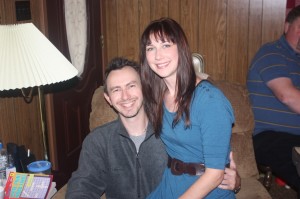 Her boyfriend, at that time, and now her fiance, Robert Boyle, had convinced Ms. Page to apply for the job as a science teacher at Jesuit. He ultimately persuaded her to apply for the job despite her uneasiness in doing so. Having been immersed into the Jesuit community now for a few years, she says that she “would not look back. It kind of feels like it’s not real. Sometimes, I think that I might just have to pinch myself,” Ms. Page explained as she held back tears.
Her boyfriend, at that time, and now her fiance, Robert Boyle, had convinced Ms. Page to apply for the job as a science teacher at Jesuit. He ultimately persuaded her to apply for the job despite her uneasiness in doing so. Having been immersed into the Jesuit community now for a few years, she says that she “would not look back. It kind of feels like it’s not real. Sometimes, I think that I might just have to pinch myself,” Ms. Page explained as she held back tears.
Working at Jesuit has allowed her to be the teacher and facilitator in the classroom. “Outside of the classroom,” she notes,” I can know more about my students on a more personal level, their characters, and what motivates them. I enjoy having real world conversations with my students.”
Mrs. Julie Carver, science department co-chair and physics teacher, reflects on having Ms. Page on board her team as a fellow science instructor. “She is truly excited about the learning behind the lessons that she teaches. She wants the experience to be overall positive and engaging. We are truly blessed to have her. Her commitment to the students is evident and that she is truly taking a personal interest in their success.”
Aside from her long list of career paths, Ms. Page also enjoys cooking, baking, arts and crafts, and reading. “Even though this may not be a hobby, I truly enjoy hanging out with family and friends, and obviously my dog, Tucker, who is a Basset Hound.”
Currently, Ms. Page is engaged to Mr. Robert Boyle. The pair are set to get married on March 8. Best wishes on their upcoming marriage!!


